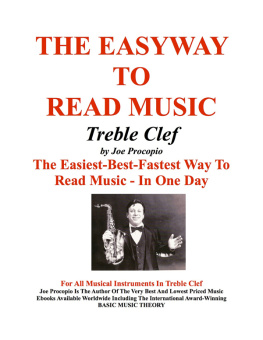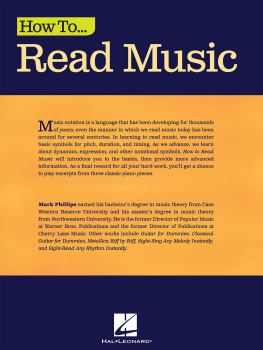
Nestled between some of the UnitedStates' most historic monuments lies The National Mall, a large, open-area parkin Washington, D.C. On January 21, 2013, this distinguished strip of land wascrammed with eager onlookers, gathered to witness theswearing in of Barack Obama to his second term as our nation's president.
Wrapped in heavy winter coats, peoplestamped their feet on the cold, hard ground, stuffed frigid hands deep intotheir pockets, and di rected their attention toward aU.S. Capitol building draped in American flags.
A lone figure quietly and gracefullytook center stage. She opened her mouth and her voice rose, softly at first,like a child waking from slumber. Within seconds, it soared co nfidently, lifting above the marching drums, the trumpets,the violins. Then it descended, coming to rest upon a tree's high limb. Thecrowd erupted.
The power of song cannot be captured bywords or symbols. It does not require explanation. A voice can tra vel directly to the core of ourvery beings.

There are few voices on the planetcapable of moving us as swiftly and as deeply as the one that belongs toBeyonce Knowles.
The flight of the songbird known as Beyonce began in the fourth largest city in theUnited StatesHouston, Texas, a city rich with diverse cultural influences.Nowhere is Houston's rich diversity more clearly demonstrated than in its musicscene. From rock and blues to hip hop, country, and Tejano (also known as Texan-Mexican music), Houston is a musical meltingpot.

Beyonce entered the Houston music scenewhen she joined the group Girl's Tyme. She was eight years old. It was as amember of this group that her incredible talent became apparent to her wholefamily and Beyonce's music career became the family'smission. After Girl's Tyme was defeated on the nationally televised talent show"Star Search," Beyonce's father quit his job in order to manage them.Her mother, a hair stylist and salon owner, volunteered her place of business a s a rehearsal space. Needless to say, the family'sinvestment in their daughter paid off.
By 1998 the group had changed their nameto Destiny's Child and their debut self-titled album, Destiny's Child, had topped the charts. The group didn't slow down from there. With their second album, The Writing's on the Wall, they became one of the most successful music acts in thecountry. At the center of all the attention was Beyonce, a star that remindedmany of two R&B legends that came before her.
Born in Detroit ,Michigan, in 1944, Diana Ross' career began at a time when only a fewAfrican-American females (such as Billie Holiday and Etta James) had found apath to success in the music business. Racism made a career in the public eye atremendous mountain to clim b.

Despite the odds, Ross rose from adepartment store clerk to Motown's brightest star. To this day, she is stillrecording music and touring the globe. In 2006, Beyonce garnered critica l acclaim for her portrayal of a character based on a youngDiana Ross in the hit film "Dreamgirls."
In 2009, the Guinness Book of WorldRecords bestowed the title of "Most Awarded Female Act of All Time"to Whitney Houston. Like Beyonce, Whitney's music c areerbegan when she was very young. Cousin to Dionne and Dee Dee Warwick and honoraryniece to legendary R&B and soul singer Aretha Franklin, Whitney beganperforming professionally when she was 14. In 1992, her career expanded to thesilver screen with t he smash hit "TheBodyguard." The soundtrack to the movie sold over a million copies in justone week, and Whitney's signature song, "I Will Always Love You," became the best-selling single by a female artist of alltime.
Like those remarkable women, Beyon ce knew that her talents as a solo vocalist and actresscould take her places that Destiny's Child could not hope to go.


Beyonce needed space to spread herwings, to soar beyond the music industry and into the rarefied air of culturalidols.
In 2013, by the time the year was a mere35 days old, Beyonce had sung at a presidentialinauguration and performed at the Super Bowl . The little girl from Houston, Texas, who lit up stages as a member of Girl's Tyme had growninto the kind of superstar that only comes along once or twice in a generation.

But without Wh itneyand Diana, there would be no Beyonce. Without Etta James, Billie Holiday, EllaFitzgerald, Aretha Franklin, and Nina Simone, there would have been no Whitneyor Diana. Beyonce can only hope that history will one day place her beside thegifted and co urageous women who paved the road forothers to follow.

"I'm not afraid of dying, I'mafraid of not trying," Jay-Z professes in "Beach Song." ForJay-Z, "not trying" means more than not producing music. For Jay-Z,"trying" means taking big risks, it means knockin g down barriers, it means that, in a society that too oftenrewards dishonesty, you stay true to your roots.
Raised in the Marcy Houses projects ofBedford-Stuyvesant, Brooklyn, Jay-Z's childhood was a struggle. When he was ateenager, a drug epidemic swep t through urban NewYork like a plague. Life was tremendouslyhard for any young man or woman simply trying to survive.























